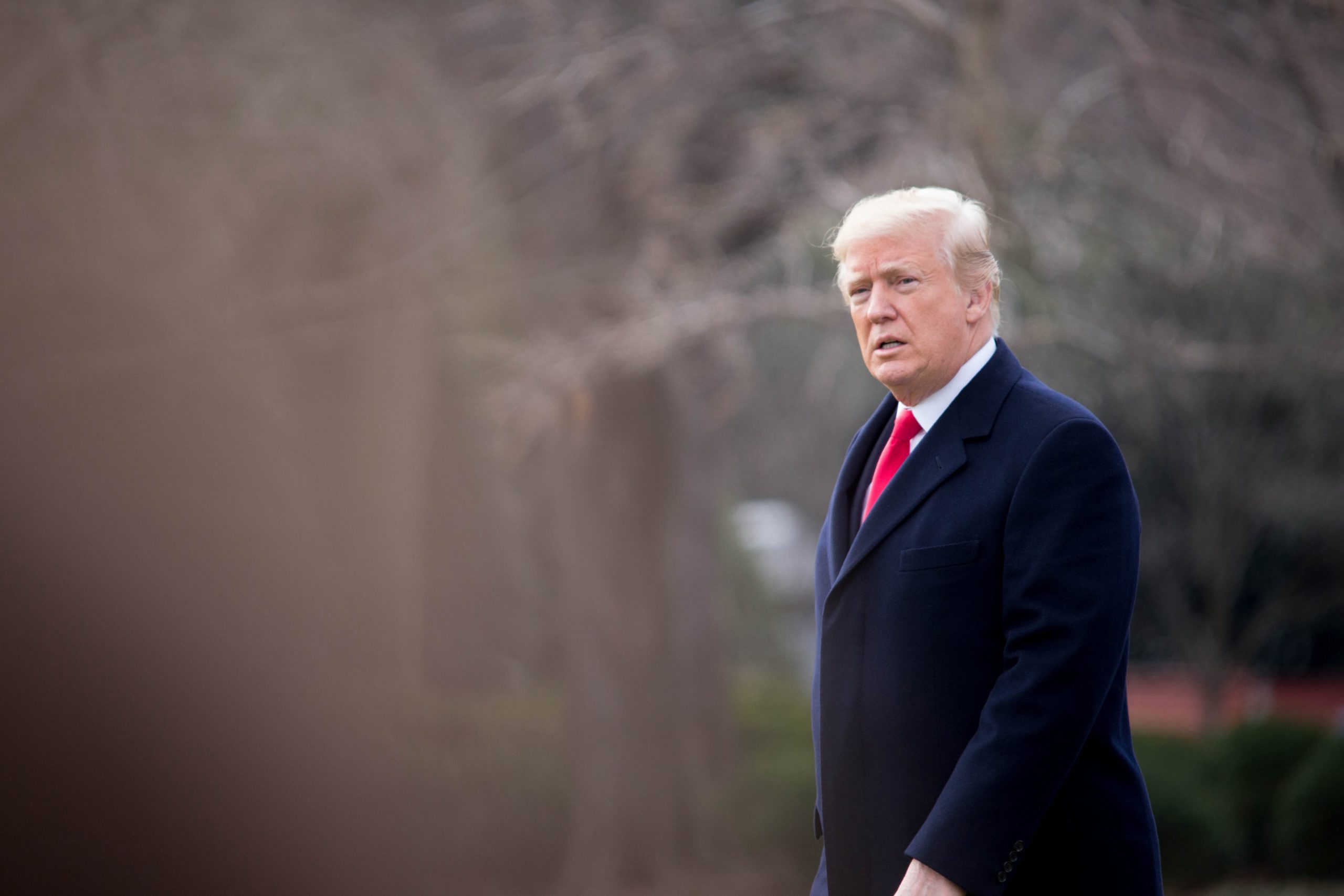Trump asks justices to intervene in Jan. 6 case


This article was updated on Feb. 13 at 9:58 a.m.
Four days after the justices heard oral arguments in his quest to be restored to the ballot in Colorado, former President Donald Trump was back at the Supreme Court, asking the justices to temporarily block a decision by a federal appeals court holding that he can be tried on criminal charges that he conspired to overturn the results of the 2020 election.
In a 39-page filing on Monday afternoon, Trump argued that “[w]ithout immunity from criminal prosecution, the Presidency as we know it will cease to exist.” And complaining of “an unprecedented and unacceptable departure from ordinary appellate procedures” by the U.S. Court of Appeals for the District of Columbia Circuit, Trump asked the Supreme Court to freeze the lower court’s ruling not only to give him time to seek review of that ruling in the Supreme Court, but also to allow him to ask the full D.C. Circuit to weigh in – a maneuver that could further delay the proceedings even if the Supreme Court were to ultimately rule against him.
The dispute over Trump’s immunity from prosecution is one with which the justices are already very familiar. In late December, they turned down a request from Special Counsel Jack Smith to decide quickly, without waiting for a federal appeals court to weigh in, whether Trump has immunity. Smith argued then that it was “of paramount importance” that Trump’s claims of immunity “be resolved as expeditiously as possible,” but the justices opted instead to allow Trump’s appeal to first play out in the D.C. Circuit, which heard oral arguments on Jan. 9 and issued its decision on Feb. 6.
The D.C. Circuit’s decision rejecting Trump’s claims of immunity came from a unanimous three-judge panel made up of two judges appointed by President Joe Biden and a judge appointed by former President George H. W. Bush. In a 57-page opinion, the panel rebutted Trump’s claim that he cannot be prosecuted for his official acts as president. It explained that Trump’s “stance would collapse our system of separated powers by placing the President beyond the reach of all three Branches … We cannot accept that the office of the Presidency places its former occupants above the law for all time thereafter.”
The panel similarly declined to accept Trump’s contention that under the Constitution, a former president can be prosecuted on criminal charges only if he is first impeached by the House and convicted by the Senate, while Trump was acquitted by the Senate. The Constitution specifies the penalties that can be imposed if an official is convicted, the court of appeals stressed, such as removal from office and a bar on holding future office, and it “makes clear that the limited consequences of impeachment do not immunize convicted officers from criminal prosecution,” but it does not mean that officials who are not convicted cannot be prosecuted.
And the Constitution’s double jeopardy clause, the panel continued, also does not bar Trump’s prosecution. Trump had contended that he cannot be criminally prosecuted because he was impeached for similar or closely related conduct but acquitted by the Senate. The double jeopardy clause, the panel emphasized, is intended to bar multiple criminal prosecutions, which is not the case here.
U.S. District Judge Tanya Chutkan had originally set a Mar. 4 trial date for Trump’s case, but last week she threw out that date and indicated that she would set a new one “if and when” Trump’s immunity claims are resolved.
Under the Supreme Court’s rules, Trump had 90 days to file his petition for review of the D.C. Circuit’s decision. But the court of appeals signaled that they expected him to move much faster, indicating that its decision would go into effect on Feb. 12 unless he went to the Supreme Court by then.
Trump came to the court on Monday afternoon, seeking a stay of the D.C. Circuit’s decision. The appeals court’s ruling that Trump is not immune from prosecution was, he wrote, “a stunning breach of precedent and historical norms.” If it is allowed to stand, he warned, it will unleash “destructive cycles of recrimination,” so that the threat of future prosecutions “will hang like a millstone around every future President’s neck, distorting Presidential decisionmaking, undermining the President’s independence, and clouding the President’s ability to deal fearlessly and impartially with the duties of his office.”
Moreover, Trump added, if he is required to stand trial “at the height of election season,” it would “radically disrupt” his ability to campaign. Therefore, he concluded, the D.C. Circuit’s ruling poses a threat to both his own First Amendment rights and those of “tens of millions of Americans” – who, he insisted, “are entitled to hear” his “campaign message as they decide how to cast their votes in November.”
Just as he did in opposing Supreme Court review in December, Trump cautioned the justices against moving too quickly. He suggested that allowing him to first seek reconsideration of the panel’s decision from the full D.C. Circuit would “provide an opportunity” for “thoughtful consideration in the lower court before this Court addresses the novel, complex, and momentous issues at stake in this appeal.”
Trump’s request will go first to Chief Justice John Roberts, who handles emergency appeals from the D.C. Circuit. The court on Tuesday morning directed Smith to file his response to Trump’s request by 4 p.m. on Tuesday, Feb. 20. Once that response has been filed, Roberts and (almost certainly) the rest of the court could either treat Trump’s request as an application for a stay of the D.C. Circuit’s decision, as he has billed it, or they could treat it as a petition for review of the lower court’s decision more broadly.
This article was originally published at Howe on the Court.
Posted in Emergency appeals and applications
Cases: Trump v. United States
